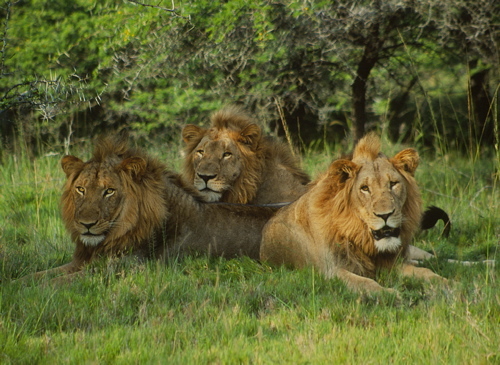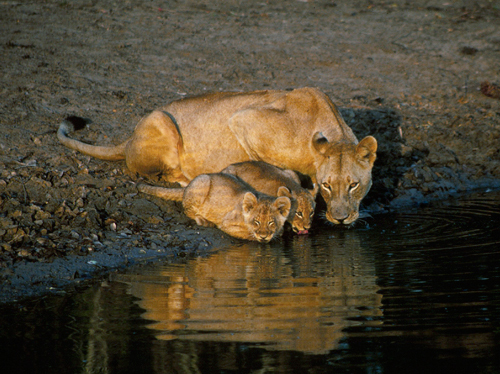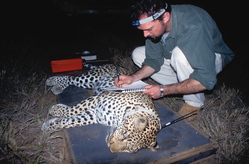By Dr. Luke Hunter, Executive Director of Panthera
Last month, 60 Minutes ran a segment on an agricultural pesticide called Furadan. Through much of the developing world, farmers scatter Furadan and similar poisons on their crops to keep insect pests at bay. As a big cat conservationist, I normally wouldn't worry about this except that Furadan doesn't just kill insects: it is also utterly deadly to lions. A handful of the tiny, bright blue granules sprinkled on a dead cow in the bush spells an agonizing death for anything that scavenges the meat: lions, leopards, hyaenas, jackals, even vultures which die by the dozen after feeding on a laced carcase. It kills domestic dogs just as efficiently, and even poisons livestock and wild herbivores that graze near a tainted carcass. Furadan is so potent that it leaves a signature halo of dead flies surrounding a poisoned carcass, a black corona that warns of death, if only predators knew what it meant.
Unfortunately for them, Furadan is odorless and tasteless so they have no way of detecting it. It is also inexpensive and widely available, making it the perfect weapon for exterminating carnivores. Sold legally to farmers for their crops, Furadan is all too accessible to herders, ranchers and pastoralists who use it to poison predators which might kill their livestock. In most countries, this qualifies as illegal use but in the remote ranches and grazing lands of Africa, the law is often powerless to prevent it.
The only real way to control it is to stop making it available. People have killed carnivores for millennia but poisons like Furadan are simply too lethal and too easily abused to have them so freely at hand. Surprisingly, the US-based company that manufactures Furadan, FMC Corporation, seems to agree. FMC's Vice President and General Manager for Agricultural Products, Milton Steele is a South African who grew up visiting his country's wonderful game reserves and is a keen wildlife photographer. Mr Steele has suspended distributing Furadan to East Africa and has initiated a buy-back program in Kenya to remove existing stock from the shelves of little agricultural stores throughout the country. My contacts there tell me you can still find it but it is becoming scarce and has disappeared entirely from some areas. At least for now, the carnivores of Kenya have some respite from Furadan.
FMC's response is encouraging, but the long-term outcome is unclear. The company has not ceased manufacturing Furadan and, instead, wants to find ways to ensure their product is not misused. In the US, where the use of Furadan is strictly regulated and law enforcement is effective, that approach can work but it is hard to believe that it's the answer in Africa. I've no doubt about Mr Steele's passion for wildlife and I believe his concern is authentic. He recently told me, FMC will not distribute Furadan in East Africa as long as it can be abused to kill carnivores; but he also believes it is possible to sell it to the producers who need it, and keep it from the hands of the livestock owners who don't. I truly hope that he is right.
Links to find out more information on this issue:
Dr. Luke Hunter is the Executive Director at Panthera, the leading global nonprofit organization devoted to saving the world's wild cat species from the diminutive black-footed cat of southern Africa to the massive tiger of Asia. Hunter has conducted fieldwork on large cats in Africa since 1992. His current projects include assessing the effects of sport hunting and illegal persecution on leopards outside protected areas, developing a conservation strategy for lions across their African range, and the first intensive study of Persian leopards and the last surviving Asiatic cheetahs in Iran.


